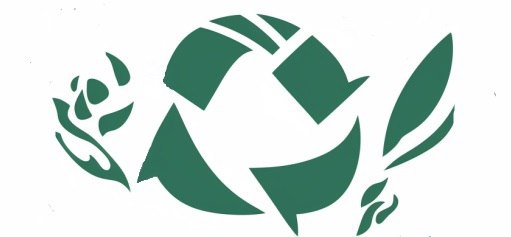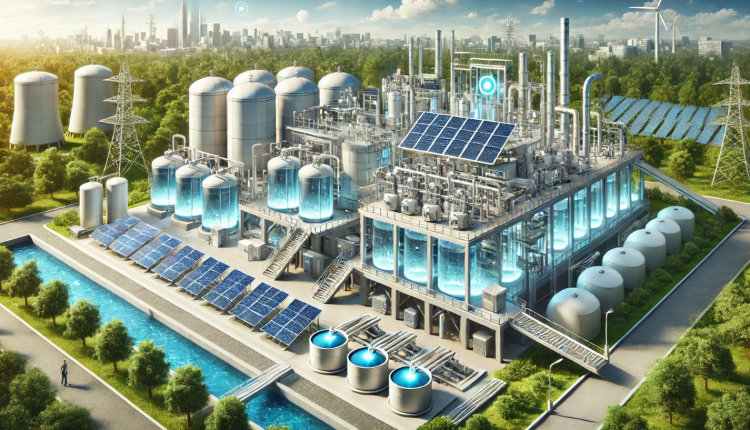- Advertisement -
Water scarcity is an escalating global concern, driven by factors such as population growth, industrial expansion, and climate change. Traditional water sources are under increasing pressure, necessitating innovative approaches to water management. One of the most promising solutions is water recycling, which involves treating wastewater to make it suitable for reuse. This article explores the latest advancements in water recycling technologies and their role in promoting sustainability.
The Evolution of Water Recycling Technologies
Water recycling has evolved significantly over the past few decades. Early methods primarily focused on basic filtration and chlorination, which were effective to a degree but limited in scope. Today, technological advancements have led to more sophisticated and efficient processes.
Membrane Filtration Technologies
Membrane filtration has revolutionized water recycling by providing a means to remove contaminants at the molecular level. Techniques such as reverse osmosis (RO) and nanofiltration (NF) utilize semi-permeable membranes to separate impurities from water. These methods are highly effective in producing high-quality recycled water suitable for various applications, including potable use.
Advanced Oxidation Processes (AOPs)
AOPs involve the generation of highly reactive hydroxyl radicals that can decompose organic pollutants and pathogens in wastewater. Methods like ozone oxidation, ultraviolet (UV) photolysis, and electrochemical oxidation fall under this category. AOPs are particularly valuable for treating water containing complex or resistant contaminants, ensuring a higher level of purification.
Biological Treatment Systems
Biological treatment harnesses microorganisms to break down organic matter in wastewater. Systems such as activated sludge processes, biological aerated filters, and membrane bioreactors (MBRs) are commonly used. These systems are effective in reducing biochemical oxygen demand (BOD) and removing nutrients, making the water suitable for non-potable applications like irrigation and industrial processes.
Applications of Recycled Water
The implementation of advanced water recycling technologies has expanded the potential uses of recycled water, contributing significantly to sustainability efforts.
Agricultural Irrigation
Agriculture accounts for a substantial portion of global freshwater consumption. Utilizing recycled water for irrigation conserves freshwater resources and provides a reliable water supply for farming, especially in arid regions. Additionally, nutrients present in treated wastewater can benefit crop growth, reducing the need for chemical fertilizers.
Industrial Processes
Industries often require large volumes of water for cooling, processing, and cleaning. Recycled water can meet these needs, reducing the demand for freshwater and lowering operational costs. Sectors such as manufacturing, power generation, and mining have successfully integrated recycled water into their operations.
Groundwater Recharge
Recycled water can be used to replenish depleted aquifers through a process known as groundwater recharge. This not only helps in maintaining groundwater levels but also prevents land subsidence and saltwater intrusion in coastal areas.
Potable Reuse
With advancements in treatment technologies, recycled water can be purified to meet drinking water standards. This approach, known as potable reuse, involves either blending treated wastewater with conventional water supplies or directly introducing it into the potable water system. While public perception can be a challenge, successful implementations in regions like Singapore and parts of California demonstrate its viability.
Benefits of Water Recycling
The adoption of water recycling technologies offers numerous environmental, economic, and social benefits.
Environmental Benefits
- Conservation of Freshwater Resources: By reusing treated wastewater, the strain on freshwater sources is alleviated, ensuring their availability for future generations.
- Pollution Reduction: Recycling water reduces the volume of wastewater discharged into natural water bodies, decreasing pollution and protecting aquatic ecosystems.
- Energy Savings: Treating and transporting recycled water often requires less energy compared to sourcing and conveying freshwater, leading to lower greenhouse gas emissions.
Economic Benefits
- Cost Savings: Industries and municipalities can reduce expenses related to water procurement and wastewater disposal by incorporating recycled water into their systems.
- Job Creation: The development and maintenance of water recycling facilities generate employment opportunities in engineering, construction, and operations.
- Resource Recovery: Beyond water, valuable by-products such as nutrients and energy can be extracted during the recycling process, contributing to a circular economy.
Social Benefits
- Water Security: Diversifying water sources through recycling enhances resilience against droughts and water shortages.
- Public Health Improvement: Properly treated recycled water can improve sanitation and reduce the spread of waterborne diseases.
- Community Engagement: Water recycling initiatives often involve public education and participation, fostering a sense of community responsibility towards sustainable water management.
Challenges and Considerations
Despite its advantages, water recycling faces several challenges that need to be addressed for broader adoption.
Public Perception
The concept of using recycled wastewater, especially for drinking purposes, can evoke discomfort among the public. Transparent communication and education are essential to build trust and acceptance.
Regulatory Frameworks
Establishing and harmonizing regulations for water recycling is complex, as standards may vary across regions. Consistent guidelines are necessary to ensure the safety and quality of recycled water.
Infrastructure Investment
Significant capital is required to develop and upgrade treatment facilities and distribution networks. While the long-term benefits are substantial, securing initial funding can be a hurdle.
Technical Limitations
Certain contaminants, such as pharmaceuticals and personal care products, may be challenging to remove completely. Ongoing research and technological innovation are crucial to enhance treatment efficacy.
The Future of Water Recycling
The future of water recycling is promising, with continuous advancements poised to overcome current limitations.
Emerging Technologies
Innovations like forward osmosis, electrochemical treatment, and hybrid systems combining multiple treatment methods are being explored to improve efficiency and reduce costs.
Decentralized Systems
Small-scale, localized water recycling systems can be implemented in residential and commercial buildings, reducing the burden on centralized infrastructure and promoting water self-sufficiency.
Integration with Renewable Energy
Coupling water recycling facilities with renewable energy sources can further reduce the environmental footprint and enhance sustainability.
Policy and Incentives
Governments and organizations are increasingly recognizing the importance of water recycling, leading to supportive policies, subsidies, and incentives that encourage adoption.
Conclusion
Innovations in water recycling technologies are pivotal in addressing the global water crisis and achieving sustainable water management. By embracing these advancements, societies can reduce reliance on freshwater sources, mitigate environmental impacts, and ensure water security for future generations. Collaborative efforts among governments, industries, and communities are essential to overcome challenges and fully realize the potential of water recycling.

